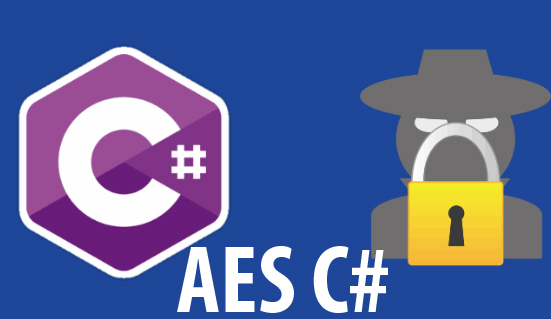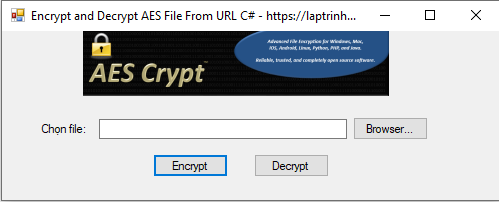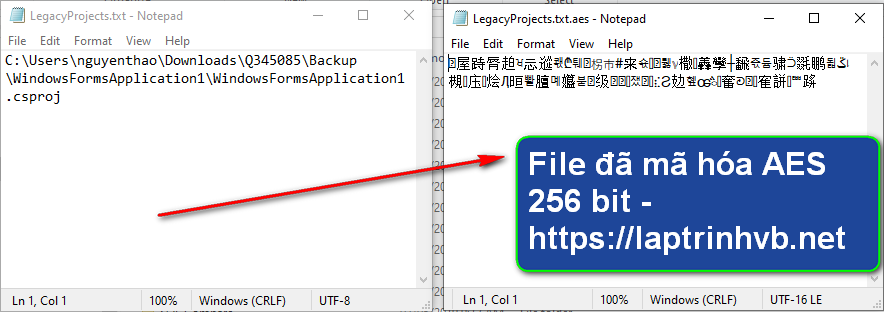- KHI SỰ TINH GIẢN LÀ ĐỈNH CAO CỦA CÔNG NGHỆ BÁN HÀNG 2026 - PHẦN MỀM BÁN HÀNG BASYS
- Phần mềm bán hàng cho hộ kinh doanh BASYS đơn giản ít thao tác
- [C#] Hướng dẫn tích hợp thêm menu vào System menu của ứng dụng
- [DEVEXPRESS] Hỗ trợ tìm kiếm highlight không dấu và không khoảng cách trên Gridview Filter
- [C#] Chia sẻ source code phần mềm Image Downloader tải hàng loạt hình ảnh từ danh sách link url
- [C#] Chụp hình và quay video từ camera trên winform
- [C#] Chia sẽ full source code tách file Pdf thành nhiều file với các tùy chọn
- Giới thiệu về Stock Tracker Widget - Công cụ theo dõi cổ phiếu và cảnh báo giá tăng giảm bằng C# và WPF
- [VB.NET] Chia sẻ công cụ nhập số tiền tự động định dạng tiền tệ Việt Nam
- [VB.NET] Hướng dẫn fill dữ liệu từ winform vào Microsoft word
- [VB.NET] Hướng dẫn chọn nhiều dòng trên Datagridview
- Hướng Dẫn Đăng Nhập Nhiều Tài Khoản Zalo Trên Máy Tính Cực Kỳ Đơn Giản
- [C#] Chia sẻ source code phần mềm đếm số trang tập tin file PDF
- [C#] Cách Sử Dụng DeviceId trong C# Để Tạo Khóa Cho Ứng Dụng
- [SQLSERVER] Loại bỏ Restricted User trên database MSSQL
- [C#] Hướng dẫn tạo mã QRcode Style trên winform
- [C#] Hướng dẫn sử dụng temp mail service api trên winform
- [C#] Hướng dẫn tạo mã thanh toán VietQR Pay không sử dụng API trên winform
- [C#] Hướng Dẫn Tạo Windows Service Đơn Giản Bằng Topshelf
- [C#] Chia sẻ source code đọc dữ liệu từ Google Sheet trên winform
[C#] Hướng dẫn mã hóa file sử dụng thuật toán AES 256 bit
Xin chào các bạn bài viết hôm nay mình sẽ hướng dẫn các bạn cách mã hóa sử dụng thuật toán AES 256 bit để mã hóa file và giải mã trong lập trình C#.
[C#] Encrypt and Decrypt File with AES 256 bit Algorithm
Trong bài viết trước, mình đã có bài viết hướng dẫn mã hóa AES bằng ngôn ngữ VB.NET, trong bài này này sẽ viết bằng ngôn ngữ C# và lưu thành tập tin file.
Như chúng ta biết thuật toán AES là thuật toán mã hóa 2 chiều đối xứng (tức là chúng ta có thể giải mã được thông qua một key khi chúng ta mã hóa).

Dưới đây là giao diện demo của ứng dụng mã hóa file sử dụng thuật toán AES:

Bước 1: Đầu tiên các bạn tạo cho mình một class AES.cs với source code C# như sau
using System;
using System.Collections.Generic;
using System.IO;
using System.Linq;
using System.Runtime.InteropServices;
using System.Security.Cryptography;
using System.Text;
using System.Threading.Tasks;
using System.Windows.Forms;
namespace AES_File
{
public class AES
{
[DllImport("KERNEL32.DLL", EntryPoint = "RtlZeroMemory")]
public static extern bool ZeroMemory(IntPtr Destination, int Length);
public static byte[] GenerateRandomSalt()
{
byte[] data = new byte[32];
using (RNGCryptoServiceProvider rng = new RNGCryptoServiceProvider())
{
for (int i = 0; i < 10; i++)
{
rng.GetBytes(data);
}
}
return data;
}
public void FileEncrypt(string inputFile, string password)
{
byte[] salt = GenerateRandomSalt();
FileStream fsCrypt = new FileStream(inputFile + ".aes", FileMode.Create);
byte[] passwordBytes = System.Text.Encoding.UTF8.GetBytes(password);
RijndaelManaged AES = new RijndaelManaged();
AES.KeySize = 256;
AES.BlockSize = 128;
AES.Padding = PaddingMode.PKCS7;
var key = new Rfc2898DeriveBytes(passwordBytes, salt, 50000);
AES.Key = key.GetBytes(AES.KeySize / 8);
AES.IV = key.GetBytes(AES.BlockSize / 8);
AES.Mode = CipherMode.CFB;
fsCrypt.Write(salt, 0, salt.Length);
CryptoStream cs = new CryptoStream(fsCrypt, AES.CreateEncryptor(), CryptoStreamMode.Write);
FileStream fsIn = new FileStream(inputFile, FileMode.Open);
byte[] buffer = new byte[1048576];
int read;
try
{
while ((read = fsIn.Read(buffer, 0, buffer.Length)) > 0)
{
Application.DoEvents();
cs.Write(buffer, 0, read);
}
fsIn.Close();
}
catch (Exception ex)
{
Console.WriteLine("Error: " + ex.Message);
}
finally
{
cs.Close();
fsCrypt.Close();
}
}
public void FileDecrypt(string inputFile, string outputFile, string password)
{
byte[] passwordBytes = System.Text.Encoding.UTF8.GetBytes(password);
byte[] salt = new byte[32];
FileStream fsCrypt = new FileStream(inputFile, FileMode.Open);
fsCrypt.Read(salt, 0, salt.Length);
RijndaelManaged AES = new RijndaelManaged();
AES.KeySize = 256;
AES.BlockSize = 128;
var key = new Rfc2898DeriveBytes(passwordBytes, salt, 50000);
AES.Key = key.GetBytes(AES.KeySize / 8);
AES.IV = key.GetBytes(AES.BlockSize / 8);
AES.Padding = PaddingMode.PKCS7;
AES.Mode = CipherMode.CFB;
CryptoStream cs = new CryptoStream(fsCrypt, AES.CreateDecryptor(), CryptoStreamMode.Read);
FileStream fsOut = new FileStream(outputFile, FileMode.Create);
int read;
byte[] buffer = new byte[1048576];
try
{
while ((read = cs.Read(buffer, 0, buffer.Length)) > 0)
{
Application.DoEvents();
fsOut.Write(buffer, 0, read);
}
}
catch (CryptographicException ex_CryptographicException)
{
Console.WriteLine("CryptographicException error: " + ex_CryptographicException.Message);
}
catch (Exception ex)
{
Console.WriteLine("Error: " + ex.Message);
}
try
{
cs.Close();
}
catch (Exception ex)
{
Console.WriteLine("Error by closing CryptoStream: " + ex.Message);
}
finally
{
fsOut.Close();
fsCrypt.Close();
}
}
}
}
Bước 2: Trong form form1.cs, chúng ta sẽ viết các hàm cho các button.
Viết sự kiện cho nút chọn file
private void btn_browser_Click(object sender, EventArgs e)
{
var dlg = new OpenFileDialog();
if(dlg.ShowDialog() == DialogResult.OK)
{
txt_input.Text = dlg.FileName;
}
}Sự kiện cho nút mã hóa (Encrypt AES C#)
private void btn_encrypt_Click(object sender, EventArgs e)
{
string password = "https://laptrinhvb.net";
GCHandle gch = GCHandle.Alloc(password, GCHandleType.Pinned);
AES.FileEncrypt(txt_input.Text, password);
AES.ZeroMemory(gch.AddrOfPinnedObject(), password.Length * 2);
gch.Free();
Console.WriteLine("The given password is surely nothing: " + password);
}Sự kiện cho nút giải mã (Decrypt AES C#)
private void btn_decrypt_Click(object sender, EventArgs e)
{
string password = "https://laptrinhvb.net";
GCHandle gch = GCHandle.Alloc(password, GCHandleType.Pinned);
AES.FileDecrypt(txt_input.Text + ".aes", txt_input.Text, password);
AES.ZeroMemory(gch.AddrOfPinnedObject(), password.Length * 2);
gch.Free();
Console.WriteLine("The given password is surely nothing: " + password);
}Kết quả demo ứng dụng sau khi mã hóa file.

Chúc các bạn thành công!


